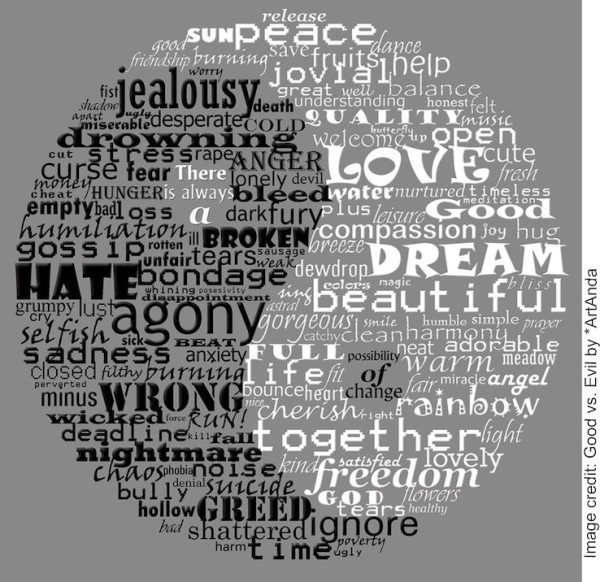Before reading these two short Best of Erik posts, check out what we’re up to in Norway.
Scenery Around the Mountain Cabin
Me: How do spirits like you communicate? Describe in terms of, um, what we do, what symbols do we, uh, what in the world am I saying here? I just have absolutely no idea! I mean, I know there’s telepathy, I mean, do you communicate in chunks of ideas, in symbols? Do you use linear language like we do? What is it? How do you communicate over there?
Jamie (laughing): Erik’s looking at me and saying, “What’s wrong with this person? Do they have diarrhea?
Me (firmly): No, Erik, it’s my question, so stop it right now, young man.
We all laugh.
Me: I can take a swig of Kaopectate if that helps.
Jamie: Oh my god, he’s cracking up.
Me: I’ll even share it with you, Erik. Sometimes you need it, too, Mister Oral Diarrhea. But seriously, how do you communicate with each other. Not with me, but with each other.
Erik: We don’t even open our mouths. We don’t even have to stand next to each other. It’s not even called telepathy, because it’s not a brain-to-brain activity. Think of it more as how a computer system communicates, you know, through the air, bouncing off the satellite dish and then to its directed source. (I thought he meant “target” but he clears this up later.) Think of it more mathematically, that my energetic body, my spirit, once it is thinking or feeling a concept, is being immediately directed to the source of what I’m thinking about or feeling about, and that source is experiencing it simultaneously, which, by the way is no new bullshit, because it’s exactly how the human body works. It’s just on different vibrational levels, but it’s exactly how the human body works, and it’s exactly how telepathy kind of goes.
Me: And instead of beaming up to the source, we’re beaming up to the brain? Is that what you’re saying?
Erik: Yes. Yeah. Yeah.
Me: Okay.
Erik: Brain to brain activity. But there’s no satellite dish for us to bounce off of. It bounces off pure source energy. God energy. Life force energy. That’s really what’s carrying or motivating, giving motion to how we communicate. We don’t have to call someone and set up a meeting. There’s no withholding here. I can’t have a thought about you and you not know about it. We’re all open books. And even if I had a thought that you would think or you would normally judge as not being good about you, you would still experience it, but you would have no desire to judge me for it. That’s a human quality—the desire to judge and measure and shred things apart.
Me: Yes, unfortunately.
Erik: You would just know that that was my truth, and that’s where I was coming from. You wouldn’t have this dire need to react emotionally with instantaneous love or disapproval or whatever. It just is, and that freedom of having no judgment or, you know, instant reaction—that’s where all of this compassionate—
(Pause)
Jamie: He’s looking for a word.
Erik: Amazing space that I exist in right now.
Jamie (chuckling): He looks so unsatisfied that he just used the word “amazing!”
Me: Aw!
Erik: That’s why the people who have those near death experiences, you know, they don’t wanna come back.
Me: Yeah.
Erik: Even if it means leaving the love of their life behind or their daughter depends on them, they don’t wanna come back. They know it’s gonna be okay. I don’t know if I explained that right. I fucked up.
Me: Aw, you did fine, Erik. But when you communicate, what is it in as it goes to the satellite dish, so to speak? Does it come in words, chunks of ideas, symbols?
Erik: No, it’s like getting visual and emotional and verbage all at once.
Me: Hm. Jesus. Confusing. That’s called multitasking.
Erik: Nah, it’s actually a really clear way, cuz you get the exact emotion that’s behind it. You don’t have to guess like you do when you read an email. You get to see what the person is creating or thinking, you know, so there’s more detail in the visual than there is in just the description in words, and then you get the verbage that goes with it.
(Okay, I think “verbage” is a new word Erik created. That’s okay. We understand what he means, right?)
Erik: And it’s not really like English, you know. It’s not like Spanish. It’s a distinct language, but it’s not like I can describe that I am totally speaking English. It’s just like this core language that you understand, and that’s what you communicate in. Even with alien forces, you know, other nations that come, we’re able to communicate. We don’t need a translator to come here.
Me: Okay, so are you saying that they’re words?
Erik: Yeah. They’re words.
Me: What do you call the language?
(Pause)
Me: In that language. Say the name of the language in that language.
Jamie: We’re having a bit of an argument. He’s saying, “I don’t fucking know, because it’s not like when you die you go to school and you learn how to speak this language.”
Erik: You just instantly know how to do it. It’s just part of you. It’s like an emotional language, but it does have words, It’s not heavy on labels and conjugation. You don’t have to sit down and learn it. It’s not a foreign language.
Me: How do you say, “How are you”?
(Long pause)
Jamie (to Erik): No.
Jamie: He looked at me; his eyes got a little bit more wide, and he put his hands out and said, “Did you get it?”
Me (Laughing): Oh!
Jamie: I know, right? The most that I understood was, “I love you.”
Me: Aw! So you can speak it, but we can’t receive it.
Jamie (to Erik): Oh, so I got it as an emotion. As love.
Me: Oh!
Jamie: But then I translated it into words, “I love you,” instead of just receiving love.
Me: How interesting.
Erik: Yes, because if you’re asking how somebody is, you’re showing care; you’re showing love for them.
Me: All of this is so fascinating. Okay so what if I say, “How does the Universe really work”?
(Pause)
Jamie: Hey, that one actually came from me! Yay!
I chuckle.
Jamie: It’s easy around Erik, now. I got this picture in my head and this picture of complete unity like I was—I still had my own skin—but I was in relation with everything around me, not just the room or the city or the United States or Earth. It was something larger—solar systems and so forth. It looked like an electric spider web that had a light source to it. It was intricately woven and very 3-D. It was not like a flat image at all, but I did feel like I was looking at it from an outside source. I wasn’t in it, because he was trying to give me the image, but Erik said if I tried to hang onto it more, I would have gotten more of the concepts that he was trying to fly by.
Me: Did you get any feeling or emotion along with it or were you not hanging on long enough?
Jamie: No, the feeling was just complete unity, complete acceptance, that there wasn’t anything that was unnatural or out of place or going against the curve.
Me: Ah, that’s awesome. Lucky you!
Jamie (chuckling): He pointed at me and said, “That’s even about your pain.”
(Erik’s referring to Jamie’s neck pain from a car accident, no fault of her own, that she had about a year ago.)
Me: What, you’re one with your pain? That sucks! You need to pick that one little spider web off!
Jamie laughs.
Me: Can you do that?
Erik: You can peel it off, but you can’t destroy it, nor can you change it. If you place it somewhere else, it might be somebody’s joy, not somebody’s pain. It doesn’t always give the same reaction.
Me: Okay. Anything else you want to communicate to us about communication?
Erik (laughing): I love the subject, even though it’s hard to translate it well. Humans are kind of stuck in the idea that they have to use their voice to communicate. It’s bullshit.
Me: Well, it’s hard. It’s really hard, but I get what you’re talking about. I really do, Erik, because when we talk, there are visual and emotional components to our communication, but the person on the other side only receives the words. A certain inflection and tone of our voice can translate some of the emotion but not all of it. And we can describe some of the visuals, but not all of it and not completely. They can’t see what we see. So, it’s frustrating, even here.
Jamie: He’s smirking and nodding his head.



